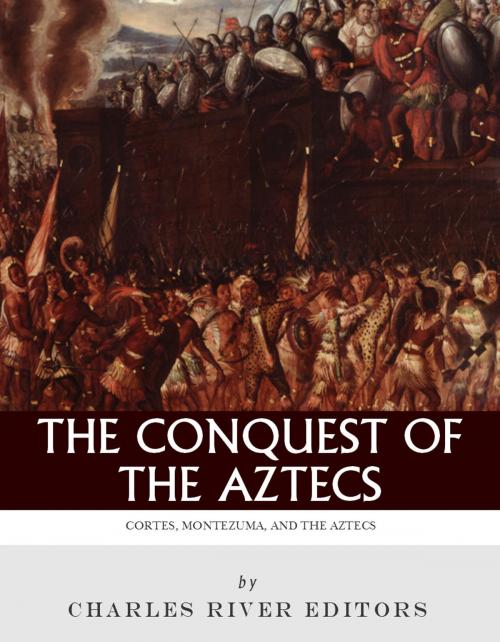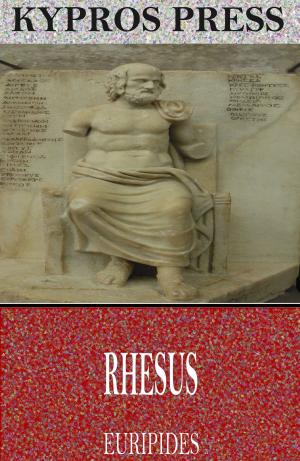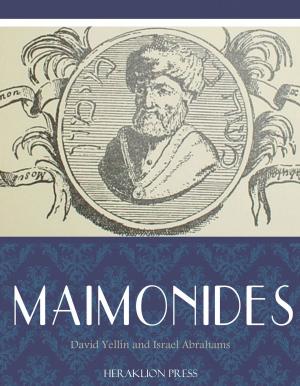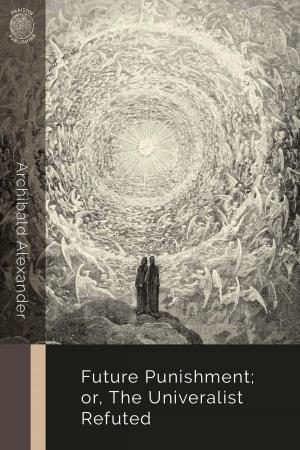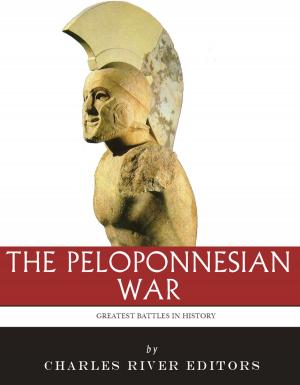The Conquest of the Aztecs: The Lives and Legacies of Cortés, Montezuma, and the Aztec Empire
Nonfiction, History, Americas, Mexico, Biography & Memoir, Historical| Author: | Charles River Editors | ISBN: | 9781475320800 |
| Publisher: | Charles River Editors | Publication: | January 1, 2013 |
| Imprint: | Language: | English |
| Author: | Charles River Editors |
| ISBN: | 9781475320800 |
| Publisher: | Charles River Editors |
| Publication: | January 1, 2013 |
| Imprint: | |
| Language: | English |
From the moment Spanish conquistador Hernan Cortés first found and confronted them, the Aztecs have fascinated the world, and they continue to hold a unique place both culturally and in pop culture. Nearly 500 years after the Spanish conquered their mighty empire, the Aztecs are often remembered today for their major capital, Tenochtitlan, as well as being fierce conquerors of the Valley of Mexico who often engaged in human sacrifice rituals. Ironically, and unlike the Mayans, the Aztecs are not widely viewed or remembered with nuance, in part because their own leader burned extant Aztec writings and rewrote a mythologized history explaining his empires dominance less than a century before the Spanish arrived. Naturally, Cortes and other Spaniards depicted the Aztecs as savages greatly in need of conversion to Catholicism. While the Mayans are remembered for their astronomy, numeral system, and calendar, the Aztecs have primarily been remembered in a far narrower way, despite continuing to be a source of pride to Mexicans through the centuries.The Spanish conquest of the Aztec and some of the myths and legends surrounding it have made its emperor's name (and variations of it like Montezuma) instantly recognizable around the globe. Still, Moctezuma II's life is shrouded in mystery; Bernal Diaz del Castillos The Conquest of New Spain and Miguel Leon-Portillas translation of the Aztec observation of the conquest, The Broken Spears, recorded but a few details about the last Aztec rulers life. The mysterious nature of Moctezuma's life is matched by the controversial nature of his death and the demise of his empire. During the Age of Exploration, some of the most famous and infamous individuals were Spains best known conquistadors. Naturally, as the best known conquistador, Hernán Cortés (1485-1547) is also the most controversial. Like Christopher Columbus before him, Cortés was lionized for his successes for centuries without questioning his tactics or motives, while indigenous views of the man have been overwhelmingly negative for the consequences his conquests had on the Aztecs and other natives in the region. Just about the only thing everyone agrees upon is that Cortés had a profound impact on the history of North America. Of course, the lionization and demonization of Cortés often take place without fully analyzing the man himself, especially because there are almost no contemporaneous sources that explain what his thinking and motivation was. If anything, Cortés seemed to have been less concerned with posterity or the effects of the Spanish conquest on the natives than he was on relations with the Mother Country itself. Of the few things that are known about Cortés, it appears that he was both extremely ambitious and fully cognizant of politics and political intrigue, even in a New World thousands of miles west of Spain itself. Cortés spent much of his time in Mexico and the New World defending himself against other Spanish officials in the region, as well as trying to portray and position himself in a favorable light back home. The Conquest of the Aztecs looks at the history and culture of the Aztec, while exploring the controversial lives and legacies of the man who ruled the empire and the man who conquered it. Along with pictures and a bibliography, you will learn about Cortés, Montezuma and the Aztec like you never have before.
From the moment Spanish conquistador Hernan Cortés first found and confronted them, the Aztecs have fascinated the world, and they continue to hold a unique place both culturally and in pop culture. Nearly 500 years after the Spanish conquered their mighty empire, the Aztecs are often remembered today for their major capital, Tenochtitlan, as well as being fierce conquerors of the Valley of Mexico who often engaged in human sacrifice rituals. Ironically, and unlike the Mayans, the Aztecs are not widely viewed or remembered with nuance, in part because their own leader burned extant Aztec writings and rewrote a mythologized history explaining his empires dominance less than a century before the Spanish arrived. Naturally, Cortes and other Spaniards depicted the Aztecs as savages greatly in need of conversion to Catholicism. While the Mayans are remembered for their astronomy, numeral system, and calendar, the Aztecs have primarily been remembered in a far narrower way, despite continuing to be a source of pride to Mexicans through the centuries.The Spanish conquest of the Aztec and some of the myths and legends surrounding it have made its emperor's name (and variations of it like Montezuma) instantly recognizable around the globe. Still, Moctezuma II's life is shrouded in mystery; Bernal Diaz del Castillos The Conquest of New Spain and Miguel Leon-Portillas translation of the Aztec observation of the conquest, The Broken Spears, recorded but a few details about the last Aztec rulers life. The mysterious nature of Moctezuma's life is matched by the controversial nature of his death and the demise of his empire. During the Age of Exploration, some of the most famous and infamous individuals were Spains best known conquistadors. Naturally, as the best known conquistador, Hernán Cortés (1485-1547) is also the most controversial. Like Christopher Columbus before him, Cortés was lionized for his successes for centuries without questioning his tactics or motives, while indigenous views of the man have been overwhelmingly negative for the consequences his conquests had on the Aztecs and other natives in the region. Just about the only thing everyone agrees upon is that Cortés had a profound impact on the history of North America. Of course, the lionization and demonization of Cortés often take place without fully analyzing the man himself, especially because there are almost no contemporaneous sources that explain what his thinking and motivation was. If anything, Cortés seemed to have been less concerned with posterity or the effects of the Spanish conquest on the natives than he was on relations with the Mother Country itself. Of the few things that are known about Cortés, it appears that he was both extremely ambitious and fully cognizant of politics and political intrigue, even in a New World thousands of miles west of Spain itself. Cortés spent much of his time in Mexico and the New World defending himself against other Spanish officials in the region, as well as trying to portray and position himself in a favorable light back home. The Conquest of the Aztecs looks at the history and culture of the Aztec, while exploring the controversial lives and legacies of the man who ruled the empire and the man who conquered it. Along with pictures and a bibliography, you will learn about Cortés, Montezuma and the Aztec like you never have before.
